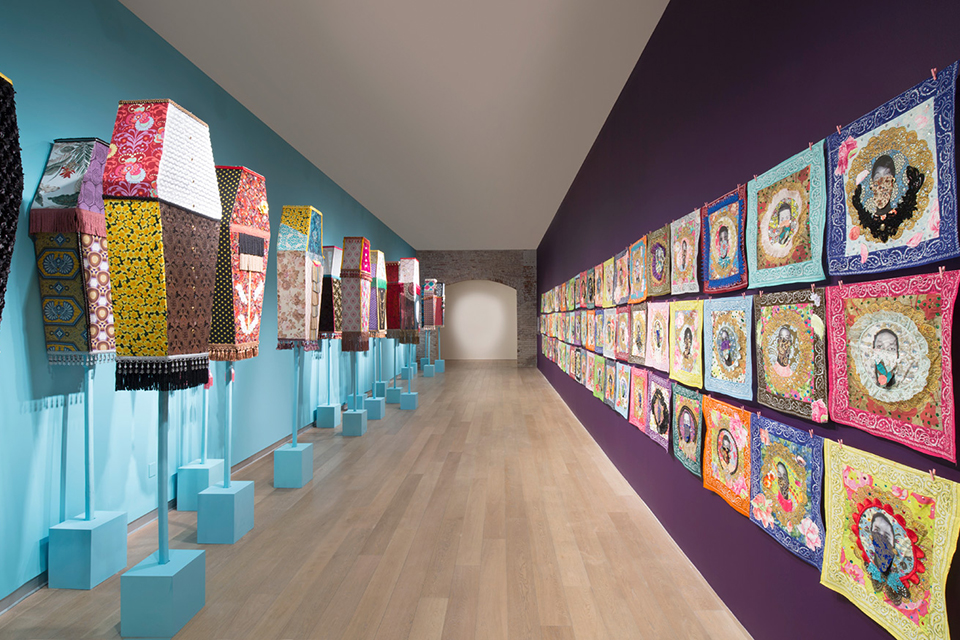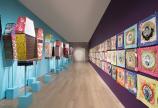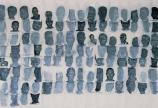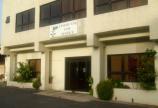Crossing Borders incoming scholar research
- Sarah Close Humayun

Every year the Centre for Asia-Pacific Initiatives at UVic supports dozens of interns and scholars abroad, as well as welcoming them into the campus community. Over the last year CAPI has welcomed three Crossing Borders Incoming Scholars. We asked one of our visiting scholars—Jeanique Tucker, a graduate student of political science from Jamaica—about her research while at UVic. Her response was both stirring and insightful.
Q&A with visiting scholar Jeanique Tucker of Ocho Rios, Jamaica
Societies are crumbling around us and we watch in horror. It is more than frightening, though, there is something so very paralyzing about the gravity of it all.
For the last five years, living in my hometown of Ocho Rios, Jamaica, it was all but impossible to ignore how much my community was unraveling. In response I began a long-standing relationship with Jamaicans for Justice, a non-profit organization dedicated to social justice through the legal representation of the marginalized. I hoped this would be enough but ultimately I wanted to do more. I wanted to understand the implications of state violence, police brutality and the moral claims made about their necessity.
This was inspired by my personal experiences working in maximum-security prisons in New York, Spanish Town and jails in Saint Ann and Half Way Tree. I saw that research was an effective way to explore the questions that plagued me.
I realized that although on the one hand I was committed to community engagement, my community would also benefit from knowing more about how all these forces operate. I believe that by doing rigorous and pointed research, as well as remaining committed to the community through volunteering and non-profit work, I can affect social change in some way, however small.
How has the Crossing Border Scholarship helped develop your research?
The Crossing Border Scholarship has allowed me to be a part of the CAPI family and engage with people in different disciplines and projects, all trying to be a part of a global dialogue that fosters inclusiveness and integration.
Being a part of a tight research centre within the UVic community has had a profound impact on me as a student but also as a woman of color in a completely new space. It helped me feel at home here.
I definitely think of my research more globally now. For a long time my research had been restricted to the Americas, because that is home for me. Being a part of the Crossing Borders scholar cohort really opened my eyes to a myriad of ways I could do good far from home.
What research are you doing at UVic?
My research project, which is entitled Moralizing Violence, highlights my dedication to social change, anti-racist praxis and telling the stories of those who have been silenced. It seeks to explore the corrosiveness of institutional violence, especially when it is shrouded in religion or morality. I argue that by calling on people’s faith, sense of decency or their general sense of morality in order to justify and encourage their brutalization, those charged with our protection do lasting and profound harm.
To better understand this phenomena:
- I use contemporary and canonical theorists to develop theory on how morality, violence and power operate;
- I explore cases of state violence in Jamaica and South Africa, with a specific focus on police brutality;
- Through examination of discourse, art and music I endeavour to get a sense of the lived experiences and tell the stories of the brutalized in a way that is ethical, socially responsible and productive; and
- finally, I am continuing to investigate how best to develop software that would allow me to meld my theoretical and empirical work with GIS mapping so that it is possible to visually recreate my findings in a way that breaks new ground and advances discovery and inquiry.
Can you give us an example of the work you look at in your research?
I am particularly fascinated by the work of Ebony G. Patterson and the ways she connects trauma, art and performance. Art is performance, even if it is confined to a canvas or molded clay, by virtue of our collective experience of it. She offers a space for Jamaicans like myself to see our wounds and engage with them in ways that open up possibilities of healing. In one particular piece entitled “If We Must Die...” she presents us with covered faces and coffins on stilts and challenges us to walk among both, so that we might experience the prying eyes of the living and the dead. It is a deeply moving tribute to those lost to violence in Jamaica.
What originally made you want to come to UVic to continue your research?
My UVic story is a bit different because my intention when I came here was to work with one particular professor whose work is in on anti-racism, feminism and ways of rethinking intersectionality, politics and performance. When I got here, though, she went on an extended leave so I still haven’t actually had the chance to meet her.
After arriving, I happened to take a class entitled "Theorizing Power and Resistance in the 21st Century" with Canada Research Chair Dr. Arthur Kroker, which fit with the kind of research project I wanted to pursue. Dr. Kroker is such an activist in his own right; a brilliant theorist and the most supportive mentor I’ve ever had. Although I didn’t come to UVic to work with him specifically, I was lucky enough to meet him as soon as I started my coursework and he has been instrumental in my growth as a researcher.
Jeanique is currently completing her Master’s degree in Political Science and will be continuing her research at the University of Alberta in the fall.
Find out more about internships, scholarships and events
Jeanique Tucker was awarded a Crossing Borders Incoming Scholar scholarship through CAPI. The Crossing Borders Incoming Commonwealth Scholar program was developed with the support of the Canadian Queen Elizabeth II diamond Jubilee Scholarships (QES) program. If you're interested in CAPI's internship and scholarship opportunities, visit the CAPI website.
More information for inbound students to UVic
Upcoming at CAPI
Ethnic Conflict and Peace-Building in Myanmar: The Rohingya Crisis and Beyond
Roundtable Discussion
April 19 at 3 p.m.
Fraser Building, room 152
Forgotten Corridors: Global Displacement & the Politics of Engagement
Canadian Association for Refugee and Forced Migration Studies Annual Conference
May 15-18, 2017
MacLaurin Building






